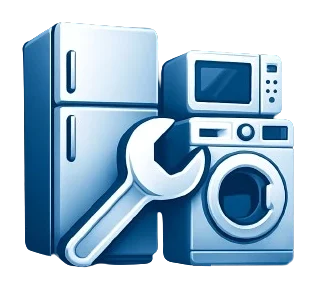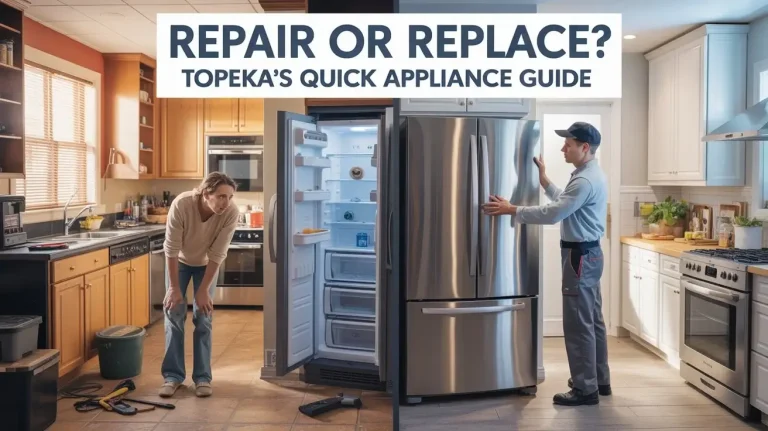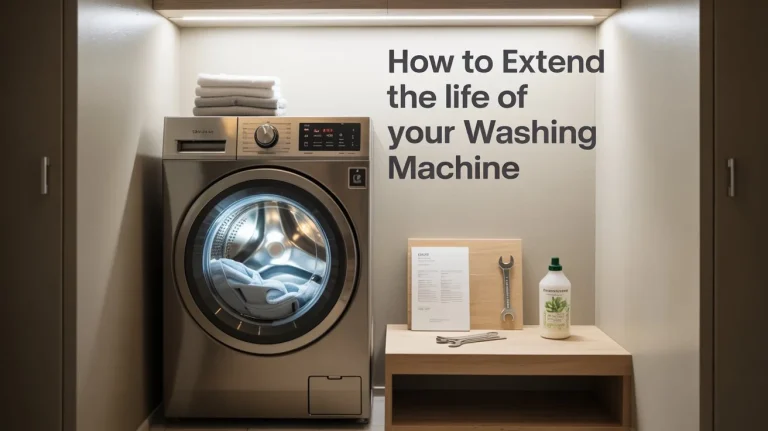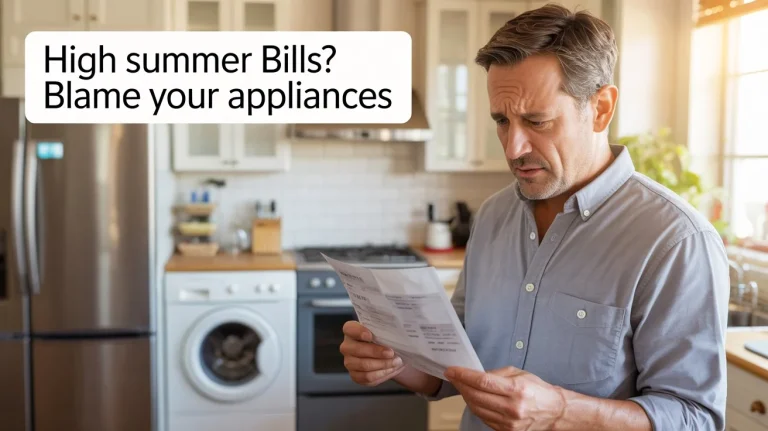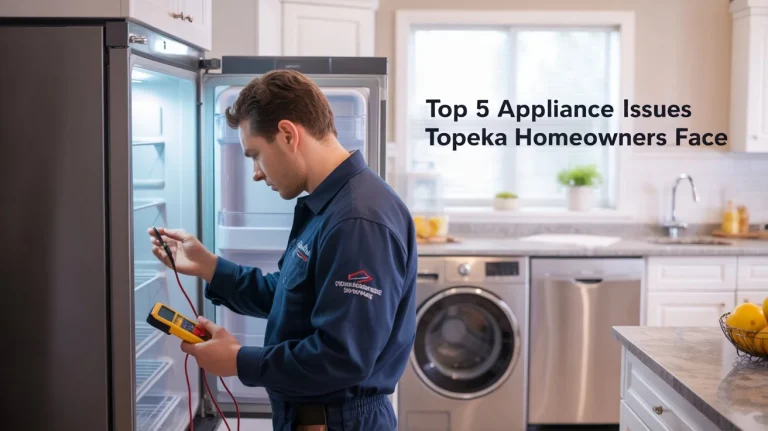Electric Vs Gas Appliances – Topeka Homeowners Guide
Electric Vs Gas Appliances. Upgrading appliances can be a big decision. One of the first choices? Electric or gas.
Each option has pros and cons. This guide breaks it down so you can make a smart call without second guessing. Whether you are dealing with a broken unit or planning a full upgrade, we will guide you completely.

What’s Already in Place?
Start with Your Setup
Look at your home’s current system.
Do you already have a gas line? That makes choosing gas easier. If not, adding one can get pricey.
Electric setups are simpler. Most homes already have the needed outlets. Installation is fast, with fewer steps involved.
Think About Ventilation
Gas appliances need proper airflow. Without it, safety becomes a concern. Electric units don’t need vents, so they work in tighter spaces.
Older homes in Topeka often lack modern venting. Electric may be the safer fit without costly upgrades.
Upfront Cost Vs Long Term Savings
Electric Wins on Purchase Price
Electric models usually cost less to buy. They are common in stores and easy to install. No special hookups needed.
But that’s just the start.
Gas Lowers Monthly Bills
Gas appliances often use less energy. In Kansas, natural gas is cheaper than electricity. That means lower bills every month.
For high-use appliances like ovens or dryers, that adds up fast.
Real World Example
According to the U.S. Energy Information Administration, households using gas cooktops spend less annually than those with electric stoves.
Small savings stack up over time.
Which One Performs Better?
For Cooking
Gas stoves heat instantly. You control the flame. Chefs love that precision.
They also keep working when the power goes out. That matters during Midwest storms.
Electric cooktops are easier to clean. Flat tops wipe down fast. They’re great for casual cooks or families.
For Drying Clothes
Gas dryers get hot fast. Clothes dry quicker. That saves time and energy.
Electric dryers work fine for smaller loads. They cost less up front but take longer to finish each cycle.
For Heating Water
Gas water heaters recover hot water fast. They work well for larger families or frequent showers.
Electric heaters take longer but are easier to install. Great for smaller homes or rentals.
Safety and Risk
Gas Brings Heat And Hazards
Gas leaks can be dangerous. Always use carbon monoxide detectors. Make sure ventilation is solid.
Only hire licensed techs for gas work. Never DIY a gas line.
Electric Has Its Own Concerns
Electric units carry fire risk if cords fray or circuits overload. Keep outlets safe. Use surge protection when needed.
Maintenance Helps Both
Keep vents, filters, and coils clean. Check connections often. Fix issues early to avoid bigger problems later.
Simple care adds years to your appliance.
Environmental Factors
Gas Emits Less Than Coal But Still Pollutes
Natural gas burns cleaner than coal. But it still releases carbon. That matters if you’re cutting down on emissions.
According to the U.S. EPA, natural gas produces about 117 pounds of CO₂ per million BTUs.
Electricity Can Be Greener It Depends
Electric appliances pollute less if your energy comes from solar or wind. Check your utility company’s energy mix.
If you are adding solar panels, electric appliances make more sense.
Common Household Uses
Kitchens
Ovens and stoves see daily use. Choose gas for speed and precision. Choose electric for safety and easier cleaning.

Laundry Rooms
Dryers run often in big families. Gas is better for bulk. Electric is fine for light loads.
Water Heaters
Gas wins in recovery time. It’s ideal for back to back showers or large homes.
Electric water heaters work well in smaller houses or when you need a quiet, low profile setup.
Repairs and Fixes
What Breaks More Often?
Gas units have more moving parts. That means more chances for failure.
Electric models are simpler. Fewer parts mean fewer problems.
Are Repairs Easy?
Electric repairs are often faster and cheaper. Most parts are available. Many techs can fix them the same day.
Gas repairs cost more. Licensed pros must do the job. That adds labor fees.
Can You Find Parts?
Older gas appliances may need rare or outdated parts. That makes fixing them harder.
Electric units usually have common parts in stock. Less waiting. Less hassle.
How Long Will It Last?
Most Appliances Last 10 15 Years
This applies to both electric and gas units. Care matters more than type.
Gas appliances tend to run longer with routine upkeep. But they cost more to maintain.
Electric models may break less often but do not always last longer.
Choose a brand with a strong track record. Whirlpool, Kenmore, Samsung, and Gibson offer solid support and available parts.
When to Pick One Over the Other
Choose Gas If:
(a) You already have a gas line installed.
(b) You cook daily and need fast, even heat.
(c) You want lower monthly bills.
(d) Your family uses a lot of hot water or laundry.
Choose Electric If:
(a) Your home is not set up for gas.
(b) You want a faster, cheaper install.
(c) You need to avoid open flames or emissions.
(d) You plan to use solar energy later.
Ask Yourself These Questions
1. How Often Will You Use It?
Daily use? Invest in gas. It saves more over time.
Once a week? Electric may be better.
2. Is Your Home Already Wired?
Adding gas lines costs more. Electric may be plug-and-play.
3. Do You Plan to Sell Soon?
Electric appliances appeal to more buyers. They’re safer and easier to manage.
4. Do You Need It Right Now?
Electric units are usually in stock. Gas may need extra time or a permit.
Why It Matters in Topeka
Topeka homes vary by age and layout. Many older homes don’t have modern gas setups.
Electric appliances may fit better without major upgrades.
Local utility rates favor natural gas for now. But rates change. Keep an eye on your bill.
Weather matters too. Power outages are common in storm season. Gas keeps cooking when the lights go out.
Talk to a Local Technician
Before you buy, speak to a qualified appliance tech.
They will check your setup, usage, and energy costs. They will help you avoid mistakes that cost more later.
Look for certified local pros who know your area and your options.
Conclusion
Electric and gas both have a place in modern homes.
Gas offers faster performance and lower running costs. But it needs more setup and care.
Electric is easier, safer, and often more flexible. It’s the right fit for many homeowners today.
Choose based on your setup, habits, and future plans. Don’t guess. Ask questions. Get local advice.
And when you’re ready to install or fix your appliances, reach out to a local tech who knows the job.
